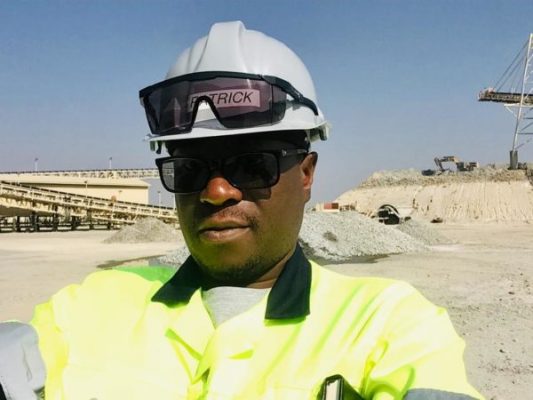There are fears that Zimbabwe will soon regret her potential to become one of the world’s largest rare earth elements (REE) supplier if the issuance of Exclusive Prospecting Orders (EPOs) continued to be delayed.
Rudairo Dickson Mapuranga
The delays by the Ministry of Mines and Mining Development and the President to grant EPOs to exploration companies have led to a situation where the quantity of minerals in the country is speculatively quantified.
This means that some metals like rare earth which have become famous in the manufacturing of high-tech products such as smartphones, chips, aircraft engines and new energy production will soon become unpopular before the country benefits.
According to RioZim Chief Geologist Mr Patrick Takaedza, Zimbabwe speculatively has the potential to become the leading rare earth elements, global producer.
“REE are mainly found in what we call Carbonatites or Alkali Ring Complexes in association with other minerals mainly vermiculite and phosphate. We have these in Zimbabwe,” Takaedza said.
The RioZim Chief Geologist also said that mines such as Shawa Carbonatite, Chishanya, Dinhidza and Dorowa can diversify to REE mining as this can be a way to yield foreign currency for the country.
“Shawa is already MIÑIÑG vermiculite so they can as well diversify to REE even as a bi-product. Dorowa too. Dorowa is a govt entity and is mining phosphate. There is also potential to diversify into REE.” Said Takaedza.
According to Takaedza, there is potential that combined exploration and mining efforts in these various Carbonatites can potentially yield substantial resources of REE. How much Resource it remains open and speculative though until all the pre-requisite resource work has been completed.
It should be noted that from Mining, the mines will need to beneficiate by flotation, gravity, magnetic, or electrostatic separation then Acidic or Alkaline chemical treatment then separation by solvent extraction or ion exchange, SCF, bio-sorption, electron extraction then finally purification and refining. This won’t be an easy and cheap process therefore investment in this sector should be prioritised.
Only China currently can purify and refine rare earth and transform them into precious minerals, magnetic powder and other high-value products. The US reportedly ships some of its rare earth productions to China for processing.
This means that ore mined every year from rare earth mines must be shipped to China, refined into compounds and products and then sold back to the United States.
Recently China has asserted its dominance of the world’s rare earth sector with the global industry moving to adopt the country’s metal and alloys standards as its own. This came as China continues to battle US sanctions by withholding its rare earth exports leading to emergency measures in the US.
Zimbabwe has been tipped to invest in rare earth as a way to balance Chinese control to become an alternative supplier as this might create a world status for the country.
However, Parliamentary Portfolio Committee on Mines and Mining Development chairperson Hon Edmund Mkaratigwa said it was not wise for the country to invest in rare earth as a way to balance the trade as this might create tension for the country.
“It’s international politics and if we look at who Zimbabwe is to the US and China, I think we can start to resolve the challenge. We are to a greater extent currently restricted from trading directly with the US as the government of Zimbabwe. Further, what does trading military-related metals to the US mean to our international relations? That is international politics that may need political solutions beyond economic approaches alone. But it is doable as long as it serves our interests as a country.” Mkaratigwa said.
Hon Mkaratigwa said the country needed to invest in the rare earth sector with global business and profit-making in mind not only as to fill a void created by China-US trade wars.
“It’s usually not about filling the void but making business sense in all investment endeavours. The main question is why should we release ours when China is speculating with theirs? Without going too far into matters beyond us at the moment, I can say we need investors and those are the biggest barometer of whether investing in the rare earth minerals is making business sense at the moment without us just being exploited for less returns for the country and it’s people today as compared to, for example, by what we may get if we hold on to them today. At the same time, are these rare earth minerals easy to extract and separate from other minerals and something like that, which goes on to technologies and resource accountability? He said
The United States has been planning to rebuild a rare earth supply chain independent of China. President Trump signed an order in September this year to speed up its development. The United States recently turned to Australia, the world’s second-largest rare earth producer and signed an agreement with Blue Line to cooperate with Australia company Lynas to build rare earth processing plant in Texas.
Zimbabwe, therefore, needs to speed up rare earth elements mining before the world attempts to ban towards cleaner minerals as the US President-elect, Joe Biden is promising a “green revolution” the position of rare earth development in his plans is still unclear as rare earth processing is highly toxic.
This issue first appeared in the January 2021 issue of Mining Zimbabwe Magazine
.png)




